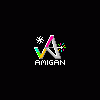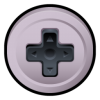Search the Community
Showing results for tags 'Windows'.
-
WinArcadia 32.4 (Windows XP/Vista/7/8/10/11): 28 April 2024 DroidArcadia 2.5 (Android): 28 April 2024 AmiArcadia 32.4 (AmigaOS 3): 28 April 2024 AmiArcadia 32.4 (AmigaOS 4): 28 April 2024 AmiArcadia 32.2 (MorphOS): 12 April 2024 Super Bug Advance 1.3 (Game Boy Advance): 11 September 2009 AmiArcadia and WinArcadia are multi-emulators/assemblers/disassemblers of these machines: * Emerson Arcadia 2001 console family (Bandai, Emerson, Grandstand, Intervision, Leisure-Vision, Leonardo, MPT-03, Ormatu, Palladium, Poppy, Robdajet, Tele-Fever, Tempest, Tryom, Tunix, etc.) (c. 1982); * Interton VC 4000 console family (Acetronic, Cabel, Fountain, Hanimex, Interton, Prinztronic, Radofin, Rowtron, Soundic, Voltmace, Waddingtons, etc.) (c. 1978); * Elektor TV Games Computer (1979); * PIPBUG- and BINBUG-based machines (Electronics Australia 77up2 and 78up5, Signetics Adaptable Board Computer, Eurocard 2650, etc.) 1977-1978); * Signetics Instructor 50 trainer (1978); * Signetics TWIN minicomputer (1976); * Central Data 2650 microcomputer (1977); * PHUNSY microcomputer (c. 1980); * Ravensburger Selbstbaucomputer aka 2650 Minimal Computer trainer (1984); * Hofacker MIKIT 2650 trainer (1978); * Astro Wars, Galaxia, Laser Battle and Lazarian coin-ops by Zaccaria (1979-1981); * Malzak 1 and 2 coin-ops by Kitronix (c. 1981); * AY-3-8500/8550/8600-based Pong systems (Coleco Telstar Galaxy, Sheen TVG-201, etc.) (1976-1977); and * VTech Type-right machine (1985). Features include: ReAction GUI, load/save states, windowed and full- screen modes, CPU tracing, trainer, drag and drop support, graphics scaling, automatic load/save of configuration/game, keyboard/joystick/ gamepad/paddle/mouse/trackball/Vision-dapter support, autofire, turbo mode, gameplay recording/playback, sprite demultiplexing, help windows, source code, real-time debugger, frame skipping, redefinable keys, save screenshots (7 supported formats), REXX port, network play (IPv4 and IPv6), real-time monitor, locale support, game selection sidebar, text-to-speech, printer output, artefacting, support for ZIPped games, clipboard support, palette editor, tone retuning, high score management, force feedback, sprite editor, 3D, assembler, disassembler, CALM support, Scale2x/3x/4x and HQx filters, animation recording (5 supported formats), sound recording (8 supported formats), horizon dejittering, tape decks (4 supported formats), RetroAchievements support, floppy disk drive emulation. The supported languages are currently English, Dutch, French, German, Greek, Italian, Polish, Russian and Spanish. Changes since V32.3: Summary: * Debugger: added PB command. * "Settings|Speed|Adjust..." subwindow: added "Increase frame skipping automatically as needed?" option. * Miscellaneous improvements and bug fixes. Details: aa: incorporated Stefan's latest MOS fixes. aa: fixed various ARexx-related bugs. incorporated Mikhail's latest Russian translation. speed subwin: added "increase frame skipping automatically as needed?" option. confirm subwin: added "confirm on quit?" toggle. now defaults to asking for confirmation when quitting. interton: improved game help for 4 games. fixed: speed regulation did not always work correctly. debugger: added PB command. removed 9 unused catalog strings. -------------------------------------------------------------------------- DroidArcadia is a port of a subset of the AmiArcadia/WinArcadia 32.4 emulator to the Android platform. The following machines are emulated: * the Emerson Arcadia 2001 console family (Bandai, Emerson, Grandstand, Intervision, Leisure-Vision, Leonardo, MPT-03, Ormatu, Palladium, Poppy, Robdajet, Tele-Fever, Tempest, Tryom, Tunix, etc.) (c. 1982); * the Interton VC 4000 console family (Acetronic, Cabel, Fountain, Hanimex, Interton, Prinztronic, Radofin, Rowtron, Soundic, Voltmace, Waddingtons, etc.) (c. 1978); and * the Elektor TV Games Computer (1979). Features include: artefacting, autofire, force feedback, frame skipping, game help, gamepad support, high score management, horizon dejittering, locale support, save screenshots, saved states, sprite demultiplexing, tone retuning, trainers. The supported languages are currently English, Dutch, French, German, Greek, Italian, Polish and Spanish. Changes since V2.44: Summary: * Added 4-way diagonal paddle layout. * Added "Increase frame skipping automatically as needed" option. * Miscellaneous improvements and bug fixes. Details: now compiled with Android Studio Iguana (rather than Electric Eel). added "increase frame skipping automatically as needed" option. interton: changed paddle layout for various games. fixed some compiler warnings. interton: improved game help for 4 games. added 4-way diagonal paddle layout option. fixed: speed regulation did not always work correctly. fixed: some games were not being autosensed and configured correctly. http://amigan.1emu.net/releases/ http://amigan.yatho.com/
-
- arcadia 2001
- interton vc 4000
-
(and 6 more)
Tagged with:
-
Hi guys, i want to know if anyone has a easy way to compile Raine under windows. Something like the "mame way" that you just havo to download in some cases just one file (i.e. mingw_for_mame_xx.zip) with all the tools compiled and ready to be used to compile the binary. I tried to compile raine a few times with no succeed. I'm trying to make a spanish translated version of raine, menus, warnings, etc. Thanks in advance.
-
Description: Wine (originally an acronym for "Wine Is Not an Emulator") is a compatibility layer capable of running Windows applications on several POSIX-compliant operating systems, such as Linux, Mac OSX, & BSD. Instead of simulating internal Windows logic like a virtual machine or emulator, Wine translates Windows API calls into POSIX calls on-the-fly, eliminating the performance and memory penalties of other methods and allowing you to cleanly integrate Windows applications into your desktop. Wine began in 1993 under the initial coordination of Bob Amstadt as a way to support running Windows 3.1 programs on Linux. Very early on, leadership over Wine's development passed to Alexandre Julliard, who has managed the project ever since. Over the years, as the Windows API and applications have evolved to take advantage of new hardware and software, Wine has adapted to support new features, all while being ported to other OSes, becoming more stable, and providing a better user-experience. An ambitious project by definition, work on Wine would steadily continue for 15 years before the program finally reached v1.0, the first stable release, in 2008. Several releases later, Wine is still under active development today, and although there is more work to be done, millions of people are estimated to use Wine to run their Windows software on the OS of their choice. Change log: New version of the Gecko engine based on Firefox 24.Preparation work for the Direct3D command stream.Window management fixes in the Mac driver.Support for IPHLPAPI functions on Android.Various bug fixes.source: http://www.winehq.org/
-
Description: Wine (originally an acronym for "Wine Is Not an Emulator") is a compatibility layer capable of running Windows applications on several POSIX-compliant operating systems, such as Linux, Mac OSX, & BSD. Instead of simulating internal Windows logic like a virtual machine or emulator, Wine translates Windows API calls into POSIX calls on-the-fly, eliminating the performance and memory penalties of other methods and allowing you to cleanly integrate Windows applications into your desktop. Wine began in 1993 under the initial coordination of Bob Amstadt as a way to support running Windows 3.1 programs on Linux. Very early on, leadership over Wine's development passed to Alexandre Julliard, who has managed the project ever since. Over the years, as the Windows API and applications have evolved to take advantage of new hardware and software, Wine has adapted to support new features, all while being ported to other OSes, becoming more stable, and providing a better user-experience. An ambitious project by definition, work on Wine would steadily continue for 15 years before the program finally reached v1.0, the first stable release, in 2008. Several releases later, Wine is still under active development today, and although there is more work to be done, millions of people are estimated to use Wine to run their Windows software on the OS of their choice. Change log: Right-to-left text layout improvements.NTLM and Negotiate authentication for RPC over HTTP.More glyphs in the built-in Wingdings font.Better system tray support in the Mac driver.Activation context improvements.Various bug fixes.source: http://www.winehq.org/
-
Description: Wine (originally an acronym for "Wine Is Not an Emulator") is a compatibility layer capable of running Windows applications on several POSIX-compliant operating systems, such as Linux, Mac OSX, & BSD. Instead of simulating internal Windows logic like a virtual machine or emulator, Wine translates Windows API calls into POSIX calls on-the-fly, eliminating the performance and memory penalties of other methods and allowing you to cleanly integrate Windows applications into your desktop. Wine began in 1993 under the initial coordination of Bob Amstadt as a way to support running Windows 3.1 programs on Linux. Very early on, leadership over Wine's development passed to Alexandre Julliard, who has managed the project ever since. Over the years, as the Windows API and applications have evolved to take advantage of new hardware and software, Wine has adapted to support new features, all while being ported to other OSes, becoming more stable, and providing a better user-experience. An ambitious project by definition, work on Wine would steadily continue for 15 years before the program finally reached v1.0, the first stable release, in 2008. Several releases later, Wine is still under active development today, and although there is more work to be done, millions of people are estimated to use Wine to run their Windows software on the OS of their choice. Change log: Support for keyed event objects.Support for the "init once" synchronization mechanism.Activation context support for DLLs, typelibs, and COM classes.Support for loading 32-bit typelibs on 64-bit.Various Mac driver fixes.Some fixes for serial port devices.Various bug fixes.source: http://www.winehq.org/
-
Description: Wine (originally an acronym for "Wine Is Not an Emulator") is a compatibility layer capable of running Windows applications on several POSIX-compliant operating systems, such as Linux, Mac OSX, & BSD. Instead of simulating internal Windows logic like a virtual machine or emulator, Wine translates Windows API calls into POSIX calls on-the-fly, eliminating the performance and memory penalties of other methods and allowing you to cleanly integrate Windows applications into your desktop. Wine began in 1993 under the initial coordination of Bob Amstadt as a way to support running Windows 3.1 programs on Linux. Very early on, leadership over Wine's development passed to Alexandre Julliard, who has managed the project ever since. Over the years, as the Windows API and applications have evolved to take advantage of new hardware and software, Wine has adapted to support new features, all while being ported to other OSes, becoming more stable, and providing a better user-experience. An ambitious project by definition, work on Wine would steadily continue for 15 years before the program finally reached v1.0, the first stable release, in 2008. Several releases later, Wine is still under active development today, and although there is more work to be done, millions of people are estimated to use Wine to run their Windows software on the OS of their choice. Change log: Support for vertical text in the Postscript driver.Version 2 of liblcms used now instead of version 1.Unicode data updated to Unicode 6.2.0.Hyperlink controls supported in installers.Improved support for XML attributes.Various bug fixes.source: http://www.winehq.org/


